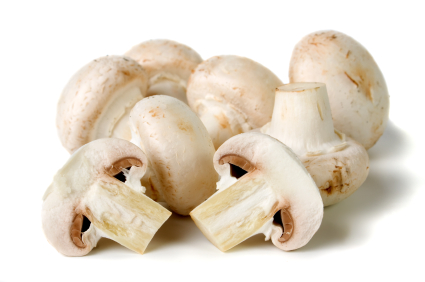
As you go about making changes to your diet to promote better health, you’re going to want to make sure that you’re getting enough vitamin B2 in your diet plan as this is one very essential nutrient for good health.
All of the B vitamins are required by the body to keep the metabolism running effectively and to maintain high energy levels. Vitamin B2 is no different and has its own unique functions that you should be aware of.
Let’s take a closer look at what vitamin B2 is all about so that you can make sure you’re taking in enough of this vital nutrient.
A List of Vitamin B2 Food Sources
The best foods to eat that will be a rich source of vitamin B2 include:
- Almonds
- Black strap molasses
- Brewer’s yeast
- Broccoli
- Brown rice
- Brussels sprouts
- Dairy products
- Eggs
- Enriched cereals
- Enriched flours
- Green leafy vegetables
- Milk
- Most Nuts and beans
- Mushrooms
- Organ meats
- Poultry
- Spinach
- Soybeans
- Wheat germ
- Whole grains
- Wild rice
- Yogurt
How To Naturally Consume More Vitamin B2
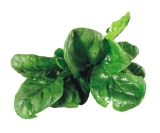
To boost your intake of vitamin B2 foods, make sure that you’re not omitting all carbs from your diet plan. Many people often think very low carb or no carb diets are the solution to fast fat loss, but this just isn’t the case.
There are a wide variety of important nutrients found in carbohydrate rich foods so you want to be sure that you’re taking these in regularly.
Whole grains, healthy cereals, and plenty of wild rice will all supply your body with the energy it needs to get through your day while also making sure that you are able to take in enough vitamin B2 and reap all the health benefits this nutrient has to offer.
In addition to that, also be sure to get your five to ten servings of fruits and vegetables each day as well.
What Role Does Vitamin B2 Perform?
Vitamin B2, which is also sometimes referred to as riboflavin is going to help to convert the various foods you eat, especially those that are rich in carbohydrates to chemical energy that the tissues can then use as a fuel source (glucose).
In addition to helping the breakdown and usage process of foods, this particular B vitamin also works as a strong antioxidant in the body, where it will seek out free radicals that you’re coming into contact with and destroy them before they harm your cells.
Free radicals can lead to very serious health effects if you’re exposed enough, so taking in enough antioxidants on a daily basis is one of the most important things that you can do to promote good health.
Along with acting as an antioxidant, vitamin B2 is also going to help convert vitamin B6 and folate into the active forms of these nutrients that are usable by the body. These nutrients are both vital for proper cell growth along with red blood cell production.
When you aren’t manufacturing enough red blood cells in the body high levels of fatigue can develop, so in an indirect way taking in enough vitamin B2 can help to offset fatigue as well.
Parts of the Body Affected By Vitamin B2
- Nails
- Skin
- Hair
- Eyes
- Nervous system
- Digestive tract
- Metabolism
The Health Benefits of Vitamin B2
Since vitamin B2 does have strong antioxidant effects on the body, one of the clear benefits that you’ll get from it will be to help reduce the aging process. When you’re coming into contact with free radicals on a daily basis, aging is much faster to ensue, so getting in vitamin B2 each day can be one of the best anti-aging treatments to utilize.
Another big benefit to taking in sufficient vitamin B2 is that it can help promote better vision and eyesight health, so could potentially help to reduce your chances of developing cataracts or other vision related disorders over the long term.
Finally, the last benefit that you’ll receive from taking vitamin B2 in through your daily or through supplementation is reduced migraine headache frequency. If you’re someone who battles these on a regular basis, vitamin B2 can help provide relief quickly and help ease your pain so you can carry on with your day.
Vitamin B2 Recommended Daily Amount
The daily recommendations of vitamin B2, or riboflavin are set at:
- 0-6 months: 0.3 mg
- 7-12 months: 0.4 mg
- 1-3 years: 0.5 mg
- 4-8 years: 0.6 mg
- 9-13 years: 0.9 mg
- 14-18 years (males): 1.3 mg
- 14-18 years (females): 1 mg
- 19 years and older (males): 1.3 mg
- 19 years and older (females): 1.1 mg
- Pregnant females: 1.4 mg
- Breastfeeding females: 1.6 mg
It should be noted that if you are going to use a vitamin B2 supplement to meet your daily intake it will be best taken with meals as this is when it’s most effectively absorbed in the body.
In addition to this, if the supplement you’re taking provides a higher dosage of riboflavin, greater than 10 mg per day, you should be sure to wear sunglasses when outside as this high of an intake could cause eye damage when exposed to UV light.
Vitamin B2 does have some potential drug interactions as well, especially with certain antidepressant medications, so make sure that you speak with your doctor before using a supplement.
Vitamin B2 Deficiency Symptoms
If you’re not taking in enough vitamin B2 with your diet or through supplementation you may start to notice that you’re experiencing cracks or sores at the corners of your mouth, you may develop eye disorders, or you may start to find that you are experiencing inflammation of the mouth and tongue.
In addition to the above, you may also experience:
- Dizziness
- Hair loss
- Insomnia
- Light sensitivity
- Poor digestion
- Slower mental responses or difficulty completing tasks that have a higher mental complexity rating
- Burning feet,
- Also slower growth.
So there you have all the information you need to know about vitamin B2. Most people who eat a well-balanced, mixed diet have no trouble getting sufficient levels of this nutrient in, but if you are following a limited diet or have additional health concerns that may warrant higher intakes of vitamin B2 as discussed with your doctor, then supplementation will likely be a good idea.

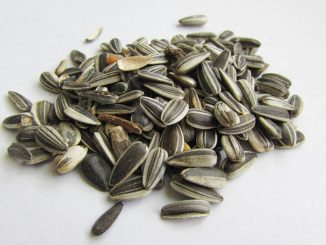
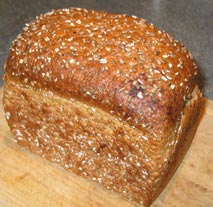
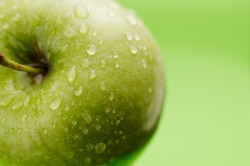
I was told to increase my intake of the B vitamins. A friend of mine told me if you want to increase your vitamin B2 intake go for foods like organic goat’s and sheep’s milk in stead of cow’s milk.
Also organic eggs are a very good source for most of the b vitamins. Green leafy vegetables, avocado and whole grains are also excellent choices. My main problems were that I had real trouble digesting food and this was due to my low intake of good natural foods – especially vegetables. I was also experiencing some hair loss and had trouble sleeping.
I think it was all related to me drinking too much alcohol in the evenings with my meals. Apparently the alcohol was preventing my body from properly absorbing the nutrients from the foods.
I have now cut back to drinking alcohol to just 1 to 2 times a week and I have already noticed a few good signs and I am feeling more energetic! So if you want to get the most from your food make sure you limit your alcohol consumption!